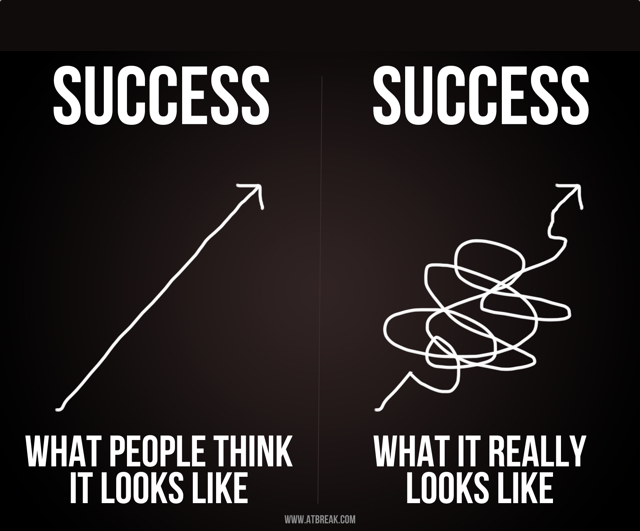- All Posts
- /
- 25 Ways to Get Better at Email Marketing

25 Ways to Get Better at Email Marketing
Messaging and Automation-
 Jimmy Daly
Jimmy Daly
-
Updated:Posted:
On this page
How are you going to become a better email marketer in 2015?
There’s plenty out there on email strategy but the success of an email campaign largely depends on the skill and knowledge of the person executing it.
The tips in this post are things you can do improve yourself. Take ownership of your growth as a marketer and kill it this year. Enjoy!
1. Create a swipe file.
A swipe file is the best way to keep track of inspiration.
When you receive a great email, use Gmail Labels, Evernote or Litmus Scope to save it for later. That way, you’ll have a reservoir of inspiration when the time comes to write your next email.
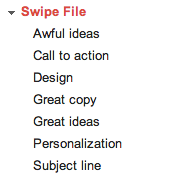
2. Extend your email address for easy filtering.
Did you know that you can extend your Gmail address? Just add a “+” then a keyword when subscribing to newsletters.
For example, I use “jimmy+newsletters@getvero.com” to subscribe to newsletters just for my swipe file. Then, I filter emails to that address to be marked as read, archived and labeled.
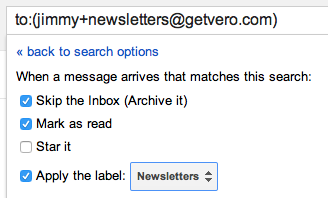
3. Subscribe to a lot of email newsletters.
If you want to send great emails, it’s a good idea to subscribe to tons of newsletters to 1) build up your swipe file and 2) see which tactics work and which really stink.
We created a list of 50 great email newsletters here but that’s just the tip of the iceberg. Don’t hold back … signup for tons of newsletters but filter them into an archive for easy reference and minimal inbox disruption.
Check out tools like Letterlist and Product Hunt to find new newsletters.
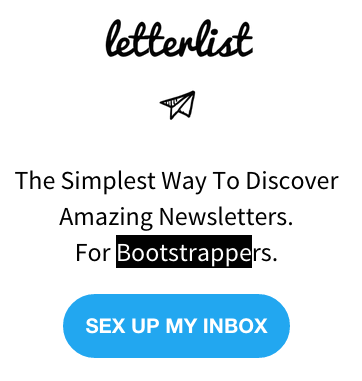
4. Signup for lots of products in your industry.
Keep track of your competitors by subscribing to their emails and signing up for their product or service. Make sure you are receiving their newsletters and promotional email as well as their onboarding and lifecycle email.
It’s a good idea to make a “Competitors” folder in Feedly to keep track of their blogs and monitor Product Hunt for newbies in your field.
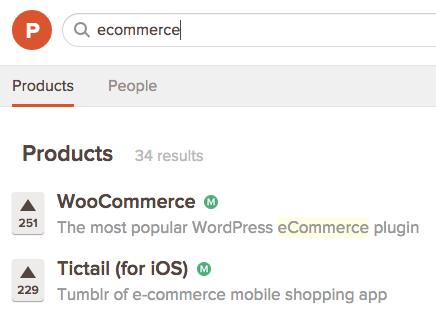
5. Signup for lots of products NOT in your industry.
I find that I’m most inspired by emails sent by businesses outside the email industry. For that reason, I signup for all kinds of apps and service just to see what kind of emails they send.
Pinterest, for example, sends a great onboarding series which has inspired our own onboarding emails.

6. Write the world’s best welcome email.
Imagine that NASA is sending a rocket to the moon. If the rocket is one degree off at launch, it’s going to miss the moon by a zillion miles. Their aim better be really good. (I’m no scientist but you get my point.)
Your welcome email is the same way. Make it damn good so you end up on the moon and not Mars.
Get a bunch of inspiration here.
7. Don’t be distracted by A/B testing.
If you were building a house, would you worry about what color to paint the bathroom before digging the foundation?
That’s what you’re doing if you’re A/B testing subject lines and button copy before building complete onboarding and lifecycle campaigns. Getting those in place is paramount to using email successfully.
Until then, A/B testing is simply a distraction.
Check out Peep Laja’s post Three Hard Truths About A/B Testing for more info.
8. Practice copywriting in Hemingway App.
Don’t write like an English major, write like a journalist.
Business writing needs to clear, simple and succinct. “Prose” is never a word you should associate with marketing copy.
Use Hemingway App to keep you honest. This awesome tool helps you avoid run-on sentences, adverbs and big words.
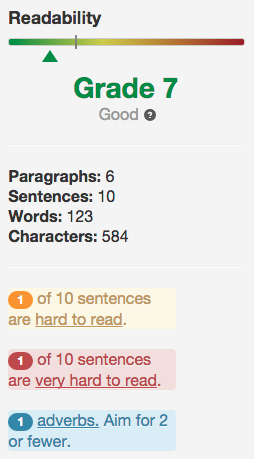
9. Send plain-text emails.
Beautiful email templates are bad for your business. Nathan Barry explains why:
The best way to market online is to teach, to regularly deliver valuable content to your audience so that they will trust you and eventually want to purchase from you. So when you send an email, what part of the communication delivers the most value?
That’s right, the content. So we should be stripping away everything else that isn’t necessary in order to focus on the content. Multi-column layouts, background images, logos, and all the other nonsense that typically fills marketing emails doesn’t deliver value to the recipient. Instead it is all about you, the sender. Flip that around and start delivering value.
Check out the Inverted Pyramid Method to learn how to send more focused emails.
10. Build a foundation of lifecycle emails.
One of the many issues with promotional emails and newsletters is that you can only use them once.
Lifecycle emails, on the other hand, are used over and over again. This is awesome because you can do the work once and get value from it for a long time and you can actually optimize it since it will be triggered again soon.
Read Samuel Hulick’s great post on Help Scout for a perfect explanation of lifecycle email.
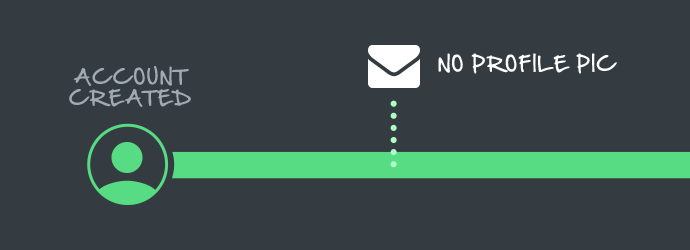
11. Unsubscribe people before they do it themselves.
Want to improve your open rates? Email people who actually care.
If someone hasn’t opened your emails in six months, remove them from your list. Consistently sending emails that aren’t opened is a good way to earn a reputation as a spammer.
Plus, it’s considerate which is a business trait we should all emphasize more anyway.

12. Do a survey.
When people subscribe to the Vero blog, we send them 12-step email campaign over the course of about three months. Two of those emails are surveys that help us gather feedback about our content.
We have learned SO much from that survey. Much of the feedback is qualitative but it’s hugely important to know who is reading our blog and what they think about it.
Here is an example: https://www.surveymonkey.com/s/PTC8Z95
And here’s the email we send containing that survey.

13. Ask people to reply to your emails.
Brian Dean from Backlinko offers content upgrades with most of his posts. When you signup, he sends you an email like this one.
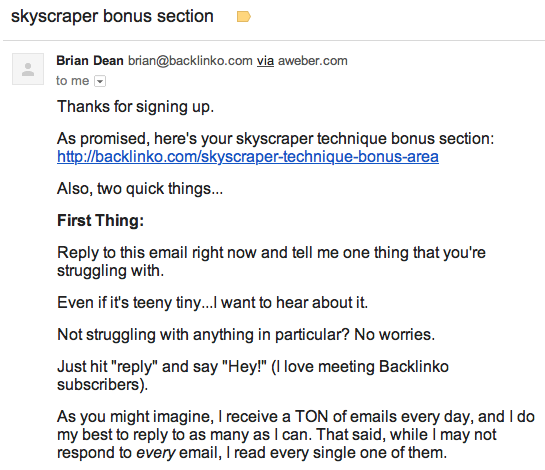
This helps him get ideas for future content, understand his audience’s needs and build relationships. Super smart.
14. Hack your personal emails.
I got an email from my friend Greg Ciotti the other day and this is what his signature looked like.

You can automate this with a tool like WiseStamp.
15. Go all-in on H2H.
Speaking of Greg Ciotti, he has mastered the “human-to-human” writing tone.
Write emails like you are speaking to one person. Forget B2B and B2C. Focus on H2H.
When I get emails from Greg, I don’t differentiate between personal and professional correspondence. Whether he sent the email just to me or to Help Scout’s 60,000 subscribers, it feels the same because he uses a conversational tone.
Every email you send is personal. And every email you send is marketing.
16. Read your emails out loud.
Baremetrics founder Josh Pigford recently started turning his blog posts into a podcast called Founder’s Journey simply by reading them out loud.
This is incredibly smart because it’s an easy way to repurpose content but it’s also a great way to hone your writing. After seeing this, I started reading my emails and blog posts out loud before publishing them.
It gives you a whole new perspective on how your writing is actually received. (Thanks for the inspiration Josh.)

17. Treat onboarding like a newborn baby.
Most parents don’t leave their newborn babies outside overnight to toughen them up. Instead, they cater to their every need – feeding them at all hours of the day and night, changing their diapers and taking lots of pictures to remember those special moments.
That’s pretty much exactly how you should treat your onboarding.
When someone news signs up, use onboarding emails to gently coo them from a wide-eyed newborn to an ass-kicking customer.

18. Tell people exactly how often to expect emails.
Setting expectations is really important with email marketing. If someone signs up for your weekly newsletter but you send emails three times a week, they are going to unsubscribe.
Tell people upfront how often they should expect to receive emails.
Here’s how Product Hunt sets expectations for their (addictive) daily email:

And here’s how Moz sets expectations for their twice monthly email:
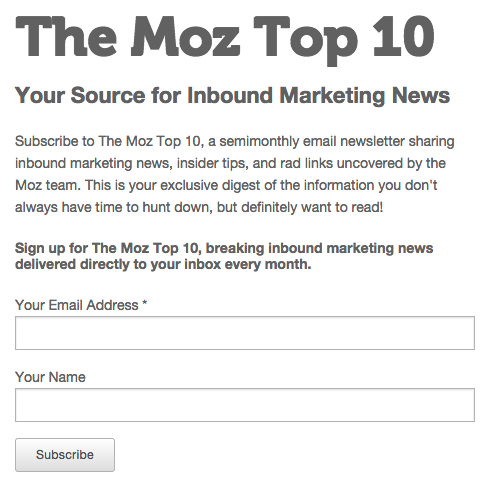
19. Use the 1-2-3 Method.
When email fails, it’s often because the sender didn’t make it abundantly clear what the recipient should do next. The 1-2-3 Method (explained in greater detail here) ensures that will never happen again.
The 1-2-3 Method looks like this:
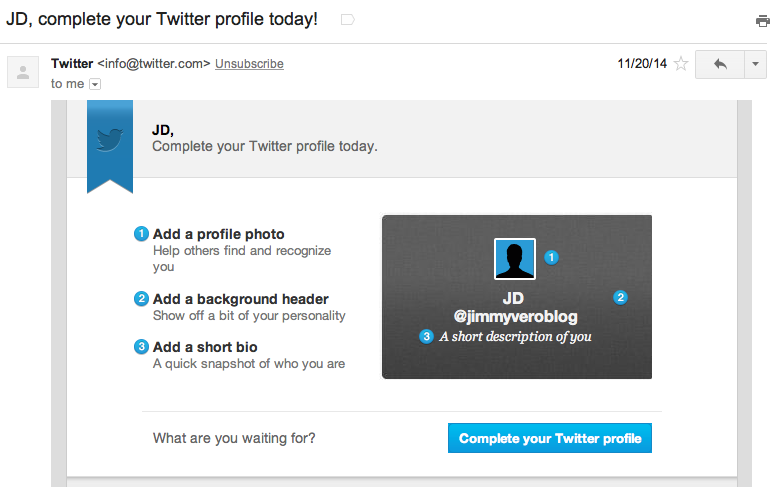
Here’s what you should do next:
- Thing 1
- Thing 2
- Thing 3
You can only choose three things so make them count!
20. Use the Inverted Pyramid Method.
The Inverted Pyramid Method is a good way to ensure that your emails aren’t distracting.
If you find yourself in a “too many cooks in the kitchen” situation, help stakeholders focus on the purpose of email marketing. Design, copy and content can actually interfere with email marketing! Use this guide minimize distractions and send tight, focused emails.
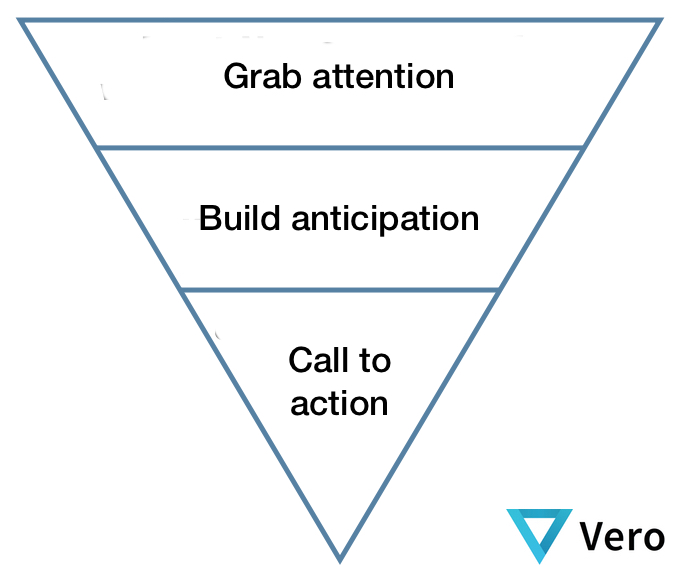
21. Commit to sending one really great behavioral email.
I know, behavioral email is intimidating if you aren’t a techie. But let me assure you that I’m no techie and even I can send behavioral emails.
If you’re in e-commerce, start with an abandoned shopping cart email. If your in SaaS, start with a retention email.
22. Create a personal newsletter.
I did this recently as an experiment and am already learning some important lessons.
For example, when you aren’t the founder of a business, you can sometimes hide behind a veil of anonymity. Maybe you create emails that are “sent” from your CEO or maybe you create emails that are just “from” the company.
When the email is yours and yours alone, you pore over every word in hopes of perfecting your email. Ownership of an email will help you learn to write like a human and send way better emails at your day job.
Check out Goodbits, Curated and TinyLetter to see how easy curation can be. Additionally, you can create a second project in Vero to keep professional and personal email separate.
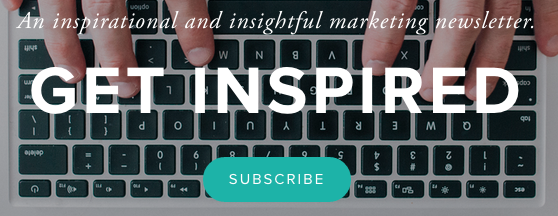
23. Use buttons.
If you want the recipient of your email to click, use a button.
Buttons work.
Here is some simple HTML to use the button below.
Oh look, another button!
24. Don’t give up.
Just like content marketing, email marketing needs time.
You need to grow a list, earn their trust, build an onboarding series, create lifecycle emails and so much more. It takes a long time. Don’t give up when the going gets tough.
